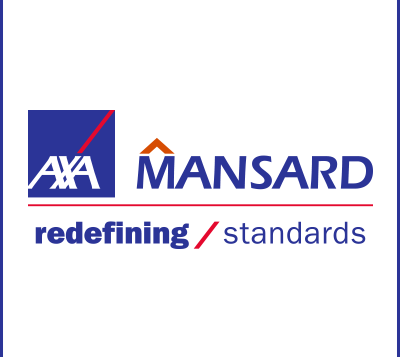Axa Mansard Insurance Plc (formerly GT Assurance Plc) will in a matter of days perfect its planned share reconstruction (READ MORE), emanating from the fact that the company does not want its outstanding shares to increase to 36bn units (an unwieldy number obviously).
This is why analysts have continued to insist that regulators, particularly the Securities & Exchange Commission (SEC) should stop this share capital regulation, and instead, use the right word: EQUITY CAPITAL.
More so, what is involved is not fresh capital (equity) injection, but the same capital (equity) account being restructured to achieve the share capital of N18bn in line with the minimum requirement set by the National Insurance Commission (NAICOM).
The directors are offering a bonus of 17 for every seven ordinary shares held by the shareholders by transferring a total of N12.5bn domiciled in the share premium, retained earnings and other reserve accounts.
Once that is done, the share capital of Axa Mansard becomes 18bn from 36bn ordinary shares of N0.50k each, they then reconstruct down gain by half to 9bn ordinary shares of N2 per share. In this way, the company has achieved its desired lower shares in issue, while meeting the N18bn minimum capital requirement.
Meanwhile, the company’s market capitalization on the Nigerian Stock Exchange will at first remain the same, with investors losing nothing from the exercise.
Technically, the seven units held pre-reconstruction at N2.57 per share becomes six units at N3.00 each. So, the valuation remains the same at N17.99 vs. N18.00 respectively.
However, the nominal value of each of the seven shares which was N0.50 before the reconstruction now becomes N2.00 per share in nominal value.
Nonetheless, the problem with reconstruction is, going forward, the market is still shallow and investor education relatively low to absorb the fact that Mansard’s nominal value has become N2, and the need for investors to use such metrics as Price/Book Value which would remain the same.
But instead, they would oftentimes continue to compare the market price of Axa Mansard with another insurance company with nominal value of N0.50, thereby falling into the error of adjudging the former’s share price expensive.
This error is common amongst retail investors, who may largely control the free float. However, the float of Mansard is not much, so hopefully that would not impact it as much as we have seen in the likes of Goldlink Insurance and Ecobank Transnational Incorporated that did reconstructions in the past and their share prices quickly returned to where it was before the exercise, thus leading to significant drop in their market cap and value erosion for their investors.
More so, the final difference in shares outstanding isn’t much in this instance (AXA Mansard), it is effectively about 14% reduction in shares outstanding, unlike the share reconstruction of Unity Bank, International Energy Insurance and C&I Leasing, that were in several multiples, even as the post-reconstruction dilution by new capital injection also partly explains the share price depression of those stocks.








